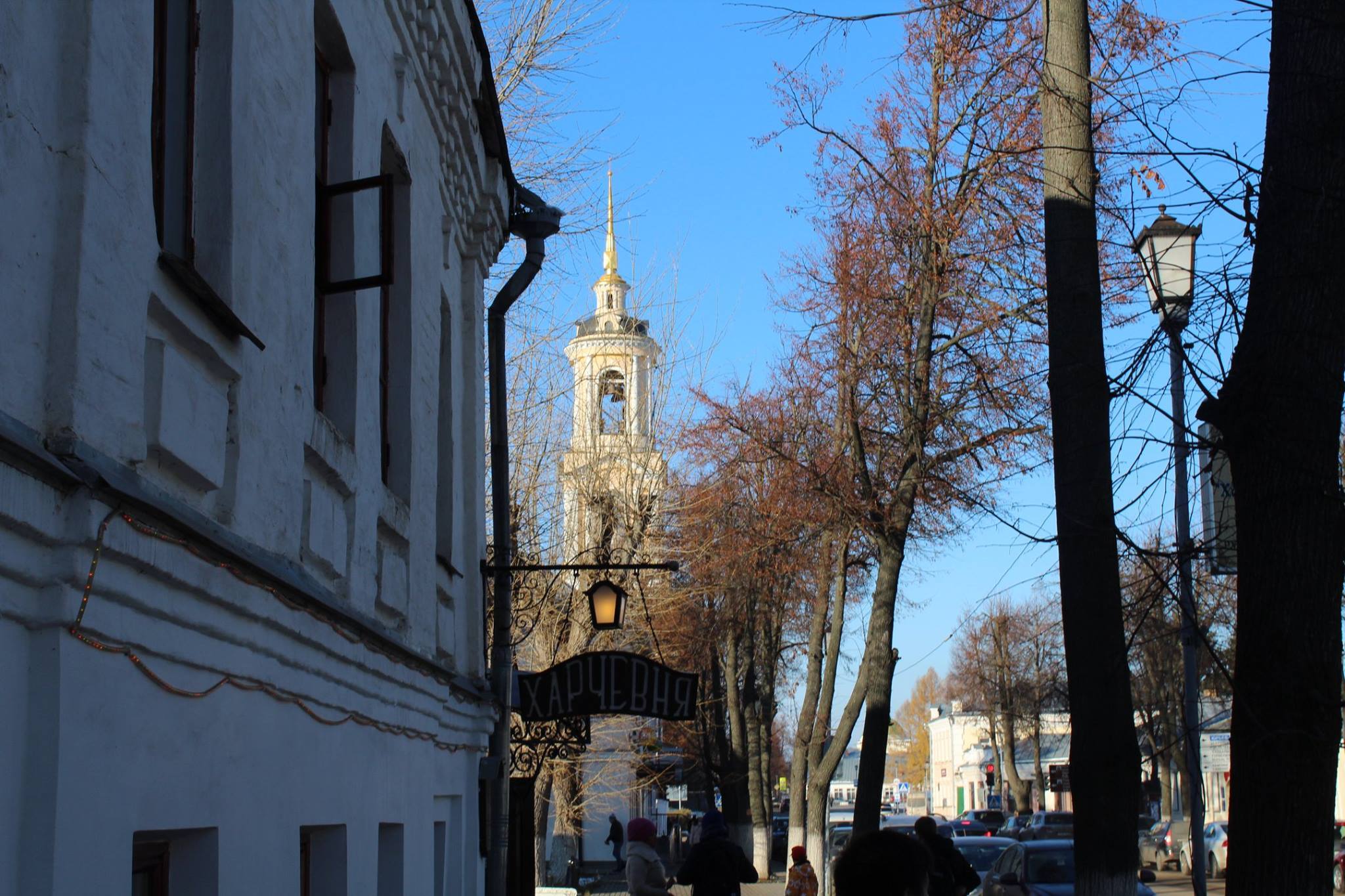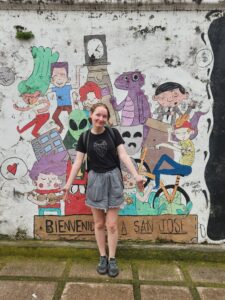Outside the train, dark fields faded and hovered in sight before disappearing behind thickets of trees. The scene seemed to repeat itself with no variation except for the changing pattern of distant streetlights, which appeared in smaller and smaller clumps as we moved farther from Moscow. We sat on the floor of the metal space at the end of the train car, dreaming of getting to the apartment and taking off our wet boots. Men and women with bundled red faces stood leaning on the walls, tired from working all day in the city.
We didn’t make eye contact, as we were advised. They said Russians don’t smile at each other in passing, that it was strange and dishonest. Before going abroad, these stories of caution were recounted alongside others: carry 2,000 extra rubles for bribing the police, develop a taste for vodka, don’t let your Americanness show.
Instead, we listened to music on the floor of the cabin. The five of us in the group — two Americans and three Russians — took turns making suggestions, but when “Saturnz Barz” by Gorillaz came on, the first song everybody in the group knew, we stopped talking, content with having finally found a shared taste.
Music was always a companion on the twisted, crisscrossing paths of the Moscow subway and bus system. Now it was a way to communicate among friends, when our own imperfect grasp of each other’s languages failed us.
I hadn’t run into any issues with what the news and common depictions of Russia had warned me about. I was never a victim of our countries’ political animosity, or a confrontation with the notorious police. It helped that I always tried to blend in. A big coat could make anyone look normal provided everyone else was wearing one. After October in Russia, you could rely on that deception.
As we pulled into the station, people lifted their suitcases and backpacks, and patiently formed uneven queues near the sliding doors. When the doors opened they spilled out silently, as if the train were exhaling its passengers into the frigid night.
We walked to the apartment in the cold and I remembered how frightened I’d been, imagining situations exactly like this. What I’d seen and what I’d been taught had trained me to think of What I’d seen and what I’d been taught had trained me to think of Russia as a dangerous place, where anyone you ran into in a concrete alley could bring harm to you.
We arrived at our destination: a gray Soviet-era apartment complex. On the fourth floor, our friend’s father offered us slippers to wear in the house, tea to keep us warm and beds to sleep in after we visited his favorite bars. He had stocked his kitchen with cookies and bottles of water.
Again, I thought of how this situation ran against all my notions of what Russia was like. I felt that the narrative I’d been exposed to dictated that this country should be cold, dangerous and uninviting. Only one of those was true.
In reality, it was that the people I met like my Russian friend’s father — who insisted he buy us drinks at every bar and try his homemade borsch at his restaurant — that made the country so memorable and subversive to expectations. I saw that there were so many dimensions to this place being left out of the stories being told in my home country. There is more to it than just politics, protests, economics and threats to the United States. There is a personal narrative, one that serves ugliness in equal measure with beauty, history and humanity.








